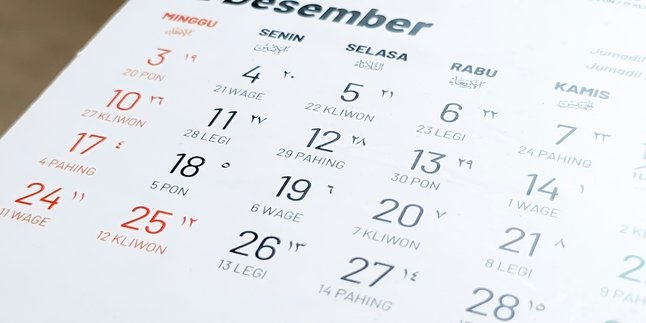Kapanlagi.com - In learning Japanese, we often encounter words that seem simple but play a crucial role in sentence structure and nuances of the language. One of the most frequently used words that is important to understand is the meaning of desu in Japanese.
Although it consists of only two syllables, the meaning of desu in Japanese has a complex and profound function in the language. This word is not just a simple connector, but a reflection of the politeness and formality system that characterizes Japanese culture.
Let's check out the explanation of the meaning of desu in Japanese in this article, complete with examples in its usage in sentences. Come on, let's take a look, KLovers!
1. The Meaning of Desu in Japanese

Illustration (credit: pixabay.com)
The meaning of desu in Japanese is a grammatical element that falls into the category of copula or linking verb. Its function is very important in sentence structure and the nuances of the Japanese language. Although it does not have a specific lexical meaning, the meaning of desu in Japanese plays a vital role in connecting the subject with the predicate in a sentence, while also marking the end of a statement in a polite form.
Pragmatically, the use of desu indicates a level of politeness in language and shows the social relationship between the speaker and the listener. In terms of meaning, the meaning of desu in Japanese is more accurately understood as a grammatical marker rather than a word with its own meaning. Although it is sometimes roughly translated as "is" or "to be," its main function is more about sentence structure.
Additionally, it can also add a nuance to the language. The meaning of desu in Japanese is an integral part of the keigo system (respectful language) in Japanese, used primarily in formal situations or when speaking with someone respected. Thus, understanding desu is not only important from a grammatical perspective but also in the context of sociolinguistics in the Japanese language.
Here are a few things you should know about desu in Japanese. And here are some things to do when using desu in the Japanese language:
1. Copula or linking verb.
2. A marker of politeness at the end of a sentence.
3. Equivalent to "is" or "are" in Indonesian.
4. Used to make sentences more formal or polite.
5. Functions to connect the subject with a nominal or adjectival-na predicate.
6. The polite form of "da" (だ) which is informal.
7. An important element in Japanese grammar for polite communication.
8. Can stand alone as a short polite answer.
9. Has no specific meaning when standing alone; its function is more about structure and nuance in language.
10. A key component in learning basic Japanese.
2. Examples of Using Desu in Japanese

Illustration (credit: pixabay.com)
In addition to knowing the explanation of the meaning of desu in Japanese, KLovers can learn examples of the use of desu in Japanese. Here are some examples of using desu in Japanese:
1. With nouns
Desu is used to connect the subject with the predicate noun. This is equivalent to "is" in Indonesian.
- "Gakusei desu." (I am a student.)
- "Kore wa hon desu." (This is a book.)
2. With -na adjectives
-na adjectives require desu at the end of the sentence to form a complete and polite statement.
- "Kirei desu." (Beautiful.)
- "Shizuka desu." (Quiet.)
3. With -i adjectives
Although -i adjectives are complete without desu, adding desu at the end makes the sentence more polite.
- "Atsui desu." (Hot.)
- "Omoshiroi desu." (Interesting.)
4. In introduction sentences
Desu is used to introduce oneself politely, connecting one's name or profession with the subject.
- "Watashi wa Tanaka desu." (I am Tanaka.)
5. In interrogative sentences
Desu ka is used at the end of a question to make it more polite.
- "Doko desu ka?" (Where is it?)
6.As a short answer
Desu can be used alone as a polite short answer, often accompanied by another word like sou.
- "Hai, sou desu." (Yes, that's right.)
7.In negative sentences
The polite negative form of desu is dewa arimasen, often shortened to ja arimasen.
- "Ame ja arimasen." (It's not raining.)
8.In past sentences
Desu can be added after the past form of a verb or adjective to make the sentence more polite.
- "Kino atsukatta desu." (It was hot yesterday.)
9.In expressions
Some common expressions may omit desu, but adding it can make the expression more formal.
- "Yoroshiku onegai shimasu." (Please help me.) (Desu is often omitted in this expression)
10.In opinion sentences
Desu is used at the end of sentences that express an opinion to give a polite nuance.
- "Kono ryouri wa oishii desu." (This food is delicious.)
That is an explanation about the meaning of desu in Japanese that KLovers can know. Understanding the meaning of desu in Japanese opens the door to a deeper understanding of the Japanese language and culture.
(kpl/dhm)
Disclaimer: This translation from Bahasa Indonesia to English has been generated by Artificial Intelligence.














